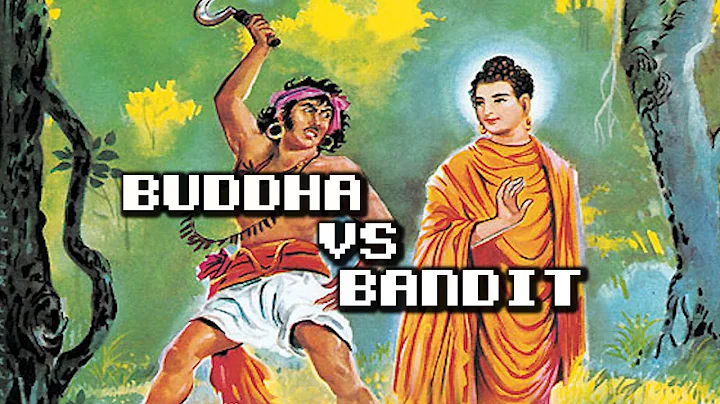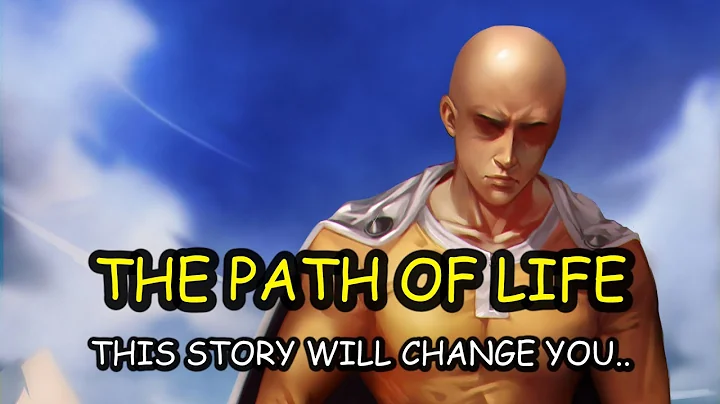He believes that if you want to become a Buddha, you can only achieve enlightenment. There will be no good rewards for doing good deeds, and even evil people can still become Buddhas. The Buddhist community at that time could not accept this shocking idea, so they forcibly drove him out of the capital Jianye (today's Nanjing, Jiangsu). This person is Master Zhu Daosheng of the Northern and Southern Dynasties.
The master of the three schools of Pi Tan, Madhyamaka, and Nirvana
Zhu Daosheng (355-434 AD), whose common surname was Wei, was from Julu, Hebei Province. When he was eight years old, he became a monk in Jianye with Zhu Fa Tai . He went on stage to preach at the age of fifteen. Both Zhu Fatai and Shi Dao'an were disciples of Buddha Tucheng, and Fatai and Dao'an's disciple Lushan Huiyuan often exchanged letters. At that time, Huiyuan invited Sangha Deva from 罽bin to Donglin Temple in Lushan Mountain. Zhu Fatai then introduced Daosheng to Lushan, and he and Huiyuan studied Vitanology with Sangha Deva.
"Bi Tan" is the abbreviation of "Abhidama", which means treatise. In China, it specifically refers to the Sarvastivada treatises that explain the "Dharma". The study of such treatises is called "Bi Tanology" ".
Daosheng was less than thirty years old when he came to Lushan, while Huiyuan, who studied with him, was already fifty years old. Starting from Fo Tucheng, Daosheng and Huiyuan were considered peers, but Huiyuan was more than twenty years older than him, so he treated Huiyuan as his disciple, but there was no master-disciple relationship between them.
After studying in Lushan Mountain for several years, I heard that the eminent monk from the Western Regions Kumarajiva came to Chang'an . With the support of Hui Yuan, Daosheng, together with Hui Guan, Hui Yan and Hui Rui, also came to Chang'an, where they became disciples of Kumarajiva, studied Mahayana Prajna and Madhyamaka, and participated in translation work. Due to his superior intelligence, Zhu Dao became one of the "Four Saints" and "Ten Philosophers" under the sect of Luo Shi.
Three years later, Daosheng returned to Lushan from Chang'an and brought Huiyuan's "The Theory of Prajna Ignorance" written by his classmate Seng Miao. It contributed to the Buddhist exchanges between the two masters Huiyuan and Luo Shi, and later generations collected their correspondence into the "Mahayana Mahayana Chapter".
Later, Daosheng left Lushan and returned to the capital Jianye, where he came into contact with the six-volume "Nirvana Sutra" fragment. After some research, he came to the conclusion that everyone has Buddha nature, including the heinous Yichanti. He also concluded from the "original nature of Buddha" that becoming a Buddha can only be achieved through "sudden enlightenment". It was unanimously opposed by the Buddhist community in the capital.
True truth is indivisible, and becoming a Buddha can only be achieved by sudden enlightenment
People nowadays generally believe that "sudden enlightenment" was proposed by Hui Neng of Zen Buddhism. In fact, as early as three hundred years before Huineng, Zhu Daosheng was advocating "sudden enlightenment".
During the Southern and Northern Dynasties, people generally believed that Buddha nature was not something humans were born with, but was acquired through acquired practice. Therefore, if you want to become a Buddha, you can only "enlighten gradually", step by step, and ascend step by step according to the ten steps (ten grounds) of the Bodhisattva's walk.
The ten stages are: the first place of joy, the second place of defilement, the third place of light, the fourth place of wisdom, the five difficult places, the sixth place before appearance, the seventh place of long journeys, the eighth place of immobility, the ninth place of good wisdom and so on. The Tenth Dharma Cloud Land. Only when you reach the Dharma Cloud Land can your merits be considered complete, achieve ultimate Nirvana, and achieve the Buddha's path. The process from aspiration to becoming a Buddha is very difficult and long, requiring many eons of practice.
Does it take such a long period of practice to become a Buddha?
The mainstream thinking in China is pragmatic, and the issues of the present life (this life) are the most important. Therefore, since the introduction of Buddhism into China, the issue of becoming a Buddha has been put on the agenda for a long time.
Zhidaolin of in the Eastern Jin Dynasty (AD 314-366) believed that the Bodhisattva's practice should be practiced gradually from the joyful place to the sixth stage of appearance, but by the time he reaches the seventh stage, he has first achieved "the endurance of the unborn Dharma." ", already possessing all the Tao qualities. Therefore, the ultimate perfection from the seventh level to the tenth level can be enlightened. However, you need to practice step by step before entering the sixth level. It is possible to achieve enlightenment and become a Buddha until you enter the seventh level. So the key lies in the seventh place.Scholars generally refer to Zhi Daolin's ideas as "small epiphanies," but in fact they are still gradual enlightenments in nature.
After Zhu Daosheng synthesized Madhyamaka and Nirvana theory, he believed that it is impossible to achieve Buddhahood in stages, and that Buddhahood can only be achieved at one time through sudden enlightenment. Because "True Suchness" and "Buddha Nature" are both unconditioned dharma , and unconditioned dharma is indivisible. "If you do nothing, there will be no hypocrisy. If you follow it regularly, you cannot be slaughtered." What can be divided is only conditioned dharma (false dharma). "The husband is said to be a person who understands that the truth (True Suchness) is indivisible, and the enlightenment language jí illuminates it. With non-dual enlightenment, it conforms to the principle of indivisibility." Therefore, if enlightenment is achieved in stages, what is realized is not the true nature of the True Suchness, but the truth. A false realization. The various stages of the Ten Grounds, Four Fruitions, and even the Six Paramitas and Thirty-seven Paths are not "true enlightenment".
But the ten levels of bodhisattva and the four fruits of recluseship were all taught by the Buddha himself. The Buddha is one who speaks the truth and does not lie. Is there any contradiction between this and the inseparability of "truth"?
Zhu Daosheng said, there is no contradiction in this. Because the ten grounds of bodhisattva and the four fruits of recluseism mentioned by the Buddha are all to encourage people to get close to the Dharma. They are convenient and skillful ways to persuade people to save others and get close to good deeds. "It is because the sage raises laws and regulations to make those who practice good deeds constantly strive for self-improvement."
Of course, these good deeds cannot be underestimated. After all, they have great benefits, and at least they can prevent people from falling into evil ways. Therefore, although Tao Sheng advocates sudden enlightenment, he does not object to people practicing gradually one by one.
Good deeds are not rewarded, Chanti has nature
In addition to "sudden enlightenment and becoming a Buddha", Zhu Daosheng also advocated that "good deeds are not rewarded" and "a Chanti also has Buddha nature".
"Good deeds will be rewarded with good deeds and evil deeds will be rewarded with evil deeds" is a common understanding among people. Buddhism also advocates "avoid doing all evil and practice all good deeds". But Zhu Daosheng said that good deeds will not be rewarded and evil deeds will not be punished, and there are a lot of Buddhist principles as basis. Of course, he is speaking from the perspective of ultimate emptiness, but for those who are unclear about ultimate truth and conventional truth, this is obviously a statement that goes against common sense.
In addition, Buddhism refers to those who commit heinous crimes as "Yichanti". Before the introduction of the Mahaparinirvana Sutra, people believed that "Yi Chanti" who had cut off his good roots did not have Buddha nature. Master Xuanzang in the Tang Dynasty still insisted on this concept. However, Tao Sheng believes that Buddha nature has no good or evil nature, and Chanti certainly has Buddha nature.
Because Zhu Daosheng's series of ideas were too deviant, he was ostracized by the Buddhist community at that time. The Sangha in Jianye, the capital, actually asked him to repent in public. Zhu Daosheng had a strong temper and swore: "If what I say does not conform to the meaning of the scriptures, I will be seriously ill and die immediately. If what I say does not conform to the meaning of the scriptures, I am willing to spend my life on the Lion Seat (the high platform where the Master sits when he lectures). )" After saying that, he walked away.
He first went to Huqiu Mountain in Suzhou, where he left the story of "The old man preached the sermon, and the stubborn stone nodded." Then he went to Lushan Mountain to live in seclusion.

Shenggong Stone Statue
A few years later, the Mahaparinirvana Sutra translated by Tanmo Chen finally spread to the south, proving that Zhu Daosheng's statement that "a Chanti also has Buddha nature" is completely correct. He thus gained a high reputation. The monks invited him to the stage to explain the Mahaparinirvana Sutra. After finishing his lecture, he actually passed away in the lecture.
Since the Northern and Southern Dynasties were in the early stages of the Sinicization of Buddhism, people always used mundane laws to compare to transcendental laws. Therefore, I could not accept Zhu Daosheng's ideas for a while, and then resisted his remarks. As a result, his discussions on enlightenment and Buddha nature were not handed down completely. Today, we can only perceive them from some fragments.
In the Tang Dynasty, with the rise of Zen Buddhism, the concept of sudden enlightenment and Buddhahood advocated by Shenggong and that everyone has Buddha nature was widely accepted. And there has been further development. Not only does Yichanti have Buddha nature, but even snakes, insects, ants, ants, flowers, plants and trees also have the wisdom life of Dharmakaya. The so-called:
The green and green bamboos are all Dharmakaya.
The lush yellow flowers are nothing but prajna!
Reference materials: Zhu Daosheng's "Fahua Shu", Liang Shi Huijiao's "Biography of Eminent Monks", Shi Huida's "Zhao Lun Shu", Tang Yongtong's "History of Buddhism in Han, Wei, Jin, Southern and Northern Dynasties"

















![[English] Who Am I - Lecture 1 - Ven. Guan Cheng - DayDayNews](https://i.ytimg.com/vi/KU0fUs2It5o/hq720.jpg?sqp=-oaymwEcCNAFEJQDSFXyq4qpAw4IARUAAIhCGAFwAcABBg==&rs=AOn4CLDFpQUN_QwRfC7bmP4sUadq-RcYdg)
![A Moving Masterpiece 清明上河图 [English narration] - DayDayNews](https://i.ytimg.com/vi/kxff-4GktOI/hqdefault.jpg?sqp=-oaymwEcCOADEI4CSFXyq4qpAw4IARUAAIhCGAFwAcABBg==&rs=AOn4CLBtHGLeUpJNCYDJYnZTuISQ1N5Vag)


